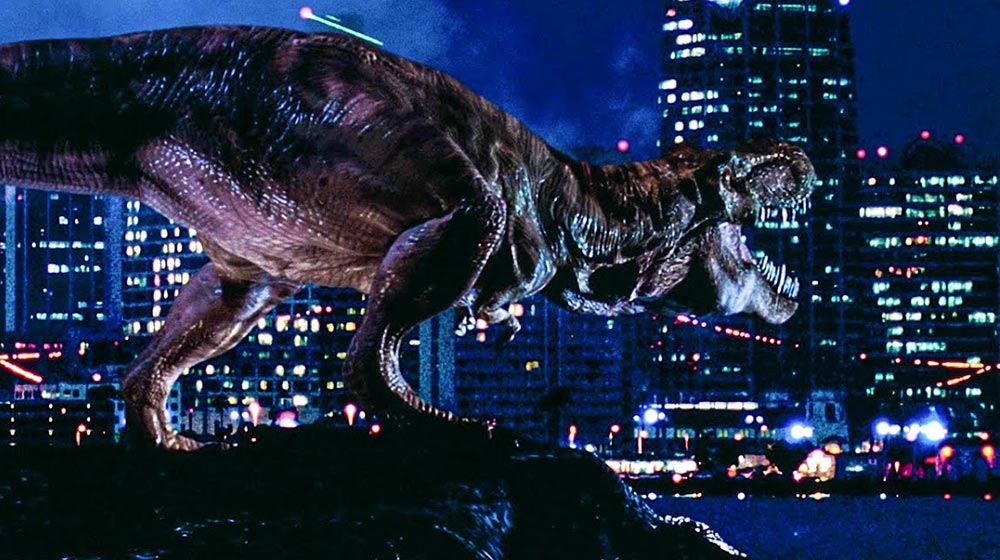Excepting the inexhaustible depths of A.I. Artificial Intelligence, there isn’t a serious Steven Spielberg film worth taking seriously. Unable to resist a maniacal urge to strip-mine historical tragedy for schmaltz and spectacle, he has borne the self-inflicted hardship of acting as the custodian of American sentiment, a preservationist whose work generates immense profit, industry honors and automatic placement in high school syllabi. At best—Saving Private Ryan, Munich—these films serve as entertaining digests which lapse into righteous nonsense and moral truisms between breathtaking setpieces. At worst—Schindler’s List, The Color Purple—his virtuosity so disagrees with the subject matter that the result repels a spectator pursuing the humanity behind the historical.
Spielberg’s nonserious works, by contrast, reward serious viewership. In these glibly unassuming pop masterpieces, with his guard down and grandiosity tempered, he conjures pure magic seemingly without effort. Within his crowd-pleasers you’ll find his greatest sequences, ideas and characters. Civics teachers have no use for Tintin’s animated motorcycle chase of literally breathtaking intensity or the joyous, psychedelic food fight in Hook, yet these passages are more pleasurable than the entirety of Spielberg’s mature works are edifying.
The most beautiful thing to be found in Spielberg’s megabudget trifles: a devilishness bordering on sadism. Unshouldering the burden of big ideas and historical persons, he revels in fashioning hilarious and ingenious methods of eviscerating human beings. Spielberg might be constitutionally incapable of outright cynicism or naked cruelty, so the most perverse moments in his filmography bear a smirking cartoonishness that dilutes the rage at center just enough for him to claim plausible deniability.
This is where we find The Lost World: Jurassic Park, arguably Spielberg’s most maligned film, and one the man himself has publicly denigrated since its release in 1996. Its predecessor remains the platonic-ideal summer tentpole almost a quarter century after its release, but The Lost World suffers in nearly every comparison save for sheer size. It is bigger, dumber, looser, goofier, and most crucially, darker than the original film.
The underside of Spielberg’s imagination, the side that commanded a T-Rex to snatch a lawyer off of a toilet in the first film, is splattered all over the sequel. Twin Tyrannosaurs (one no longer being enough) toss a helpless victim in the air before ripping him in half by pulling at both ends. Another catastrophically unlucky human is crushed by a charging Tyrannosaur before suffering the humiliation of sticking to the underneath of its foot for repeated stompings as the monster pursues his buddies. In Spielberg’s filmography, The Lost World is more Tex Avery than David Lean.
As for the seriousness of this work, the predigestion of history in Lincoln and War Horse leave scant room for contemplation and productive engagement. Those films sit on the screen and remain, completely inert. Thoroughly ridiculous and occasionally astonishing, The Lost World: Jurassic Park incredibly provides potential analogies for the human experience, such as the poor bastard stuck to the marauding dinosaur’s foot, that are far harder to shake than any solemn history lesson.



